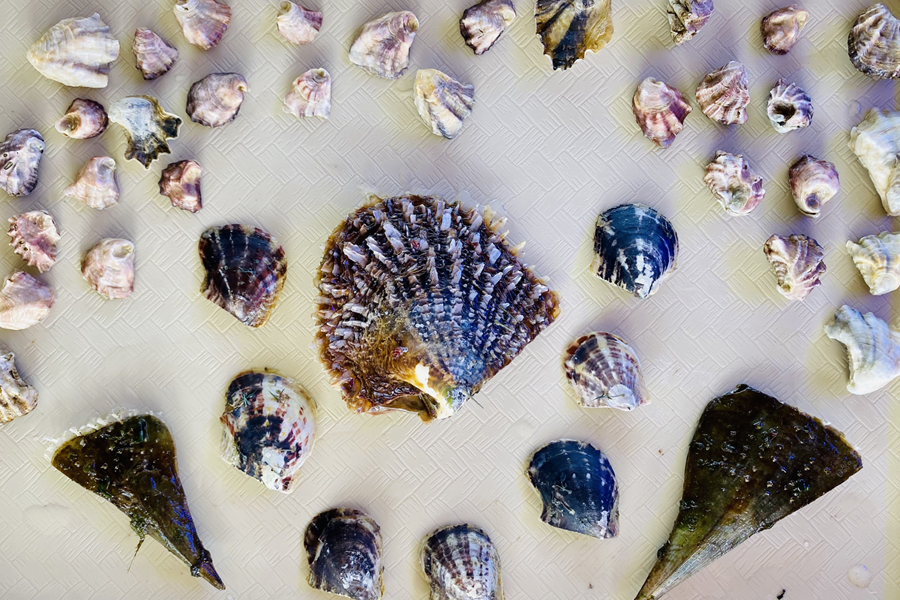Research and education to support development of open-water restorative and production aquaculture in Hilo Bay
PRINCIPAL INVESTIGATOR: Maria Haws
Co-INVESTIGATOR: Karla J. McDermid Smith
Sea Grant Graduate Fellow: Christian Colo
Research Track: Aquaculture

The Hilo Bay Research and Training Farm is one of the few open-water, near-shore examples of mariculture in Hawaiʻi distinct from Hawaiian fishponds. Since its establishment in 2011 by researchers at the University of Hawaiʻi Hilo to develop shellfish farming, the partnerships have been expanded to include local non-profit, educational, and private sector partners to enhance direct community benefits.
This project includes research, training, and demonstration activities that are targeted to develop a feasible model for near-shore Integrated Multitrophic Aquaculture (IMTA), to test the use of bivalves and macroalgae for water quality improvement and to serve as a focus for outreach that addresses key coastal issues such as water quality and sustainable economic development. This work will provide data on the growth, survival, and quality of four native bivalve species and two native species of macroalgae. Water quality will be monitored around the farm and will include measuring for pollutants from past and current human activity, including possible impacts from past sugar cane cultivation. The utility of bivalves and limu (native seaweed) to mitigate climate change and ocean acidification impacts will also be evaluated. The results will be widely disseminated to the partners and stakeholders throughout the state.

